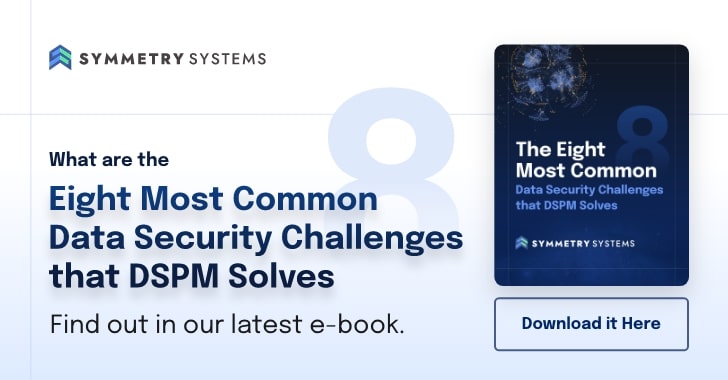As the driving force of modern business, data is likely your business’ greatest asset – and its greatest source of risk. Security teams face a host of challenges when it comes to protecting this data; IAM and legacy perimeter- and device-based data security technologies no longer suffice. In a recent report, we uncover the eight most common data security challenges that teams face today and how data security posture management (DSPM) solves them. Let’s take a look at those top security challenges.

#1: Lack of a Data Inventory
A data inventory gives organizations visibility into their data, including what data they have and where data resides both on-prem and in a cloud environment. Unfortunately, most organizations lack this critical component of an effective data security strategy because it’s not easily achieved. Data has taken on a life of its own, with millions of data objects often stored across thousands of data stores. And the cloud service providers don’t provide the visibility organizations require to protect data.
#2: Dormant Data Stores
The production and collection of significant volumes of data inevitably leads to dormant data stores — those that have not been accessed or contain data that has not been used for an extended period. These data stores may or may not be of business value, but in the meantime, they unnecessarily increase the organization’s security risk by widening the attack surface and blast radius of a potential data breach.
#3: Over-Privileged Data Stores
Data should only be accessible to users with a legitimate business need for that data. Unfortunately, this is easier said than done, and data stores often have widespread access enabled to allow operations on data by identities that typically don’t need it. Project managers or owners generally give out credentials without understanding their direct or derived permissions and may not have visibility into the kind of access or functionality the permission can grant.
#4: Dormant Identities
Like dormant data stores, dormant identities have been inactive for a period of time. Dormant identities tend to proliferate as organizations quickly grant access to employees, vendors, contractors and other third parties, but lack the processes to review and remove identities that are no longer in use. Dormant identities increase the attack surface, providing attackers with a greater number of access points to sensitive information.
#5: Over-Privileged Identities
Identities should only have the privileges required to carry out the job duties that are assigned to them. When organizations overestimate the level of access or permissions an identity requires, they expose themselves to significant and preventable business impact. If a user with malicious intent obtains access via an over-privileged identity, they can obtain more access and do more damage than they would otherwise.
#6: Delayed or Incomplete Employee and Vendor Offboarding
Organizations tend to move fast to onboard new employees and third parties, but when these users move on, offboarding processes are weak or nonexistent. As a result, no one removes the permissions or deletes the identities that are no longer required, and they remain “available” to former employees, contractors, or an attacker should the credentials become compromised.
#7: Inadequate Segregation of Duties between Development, Test, and Production Environments
Segregation of duties is the breaking down of a process into discrete tasks that no single identity or individual can complete on their own. Segregation of duties between development, test, and production environments can help reduce the risk of data fraud, misuse, theft, and more. It’s not unusual for organizations to fail to implement segregation of duties when they adopt DevOps practices.
#8: Application and Backup Misconfiguration
Misconfigurations arise when teams improperly configure technologies, services, or cloud data stores, or fail to configure them to reduce security risks. Often the result of human error, misconfigurations can introduce significant risk. Misconfigurations range from not changing default usernames and passwords to not scheduling data backups.
In This Case, 8 Isn’t Great. Improve Your Data Security with Less Complexity.
These eight data security challenges are byproducts of operating in the cloud. Download the report to learn how a DSPM solution like Symmetry Systems’ DataGuard can address these challenges and more to help you obtain full data visibility and secure your business from the data out.
Want a deeper analysis of these 8 data security challenges? Download the e-book.






